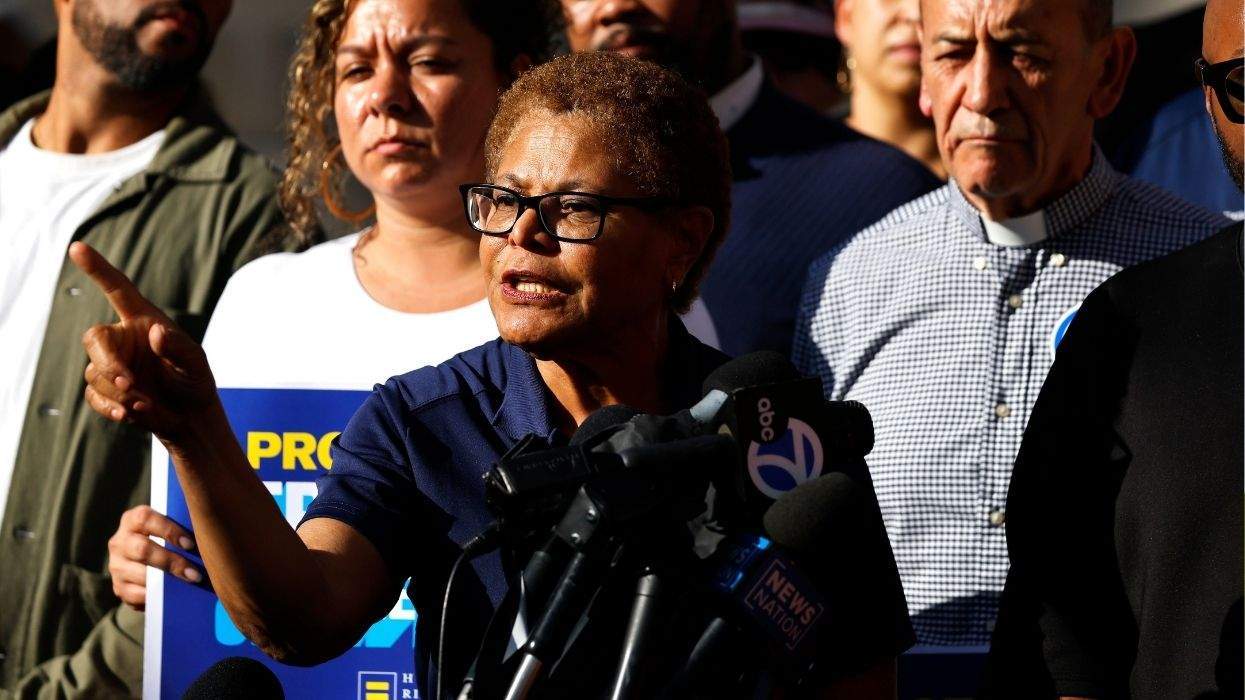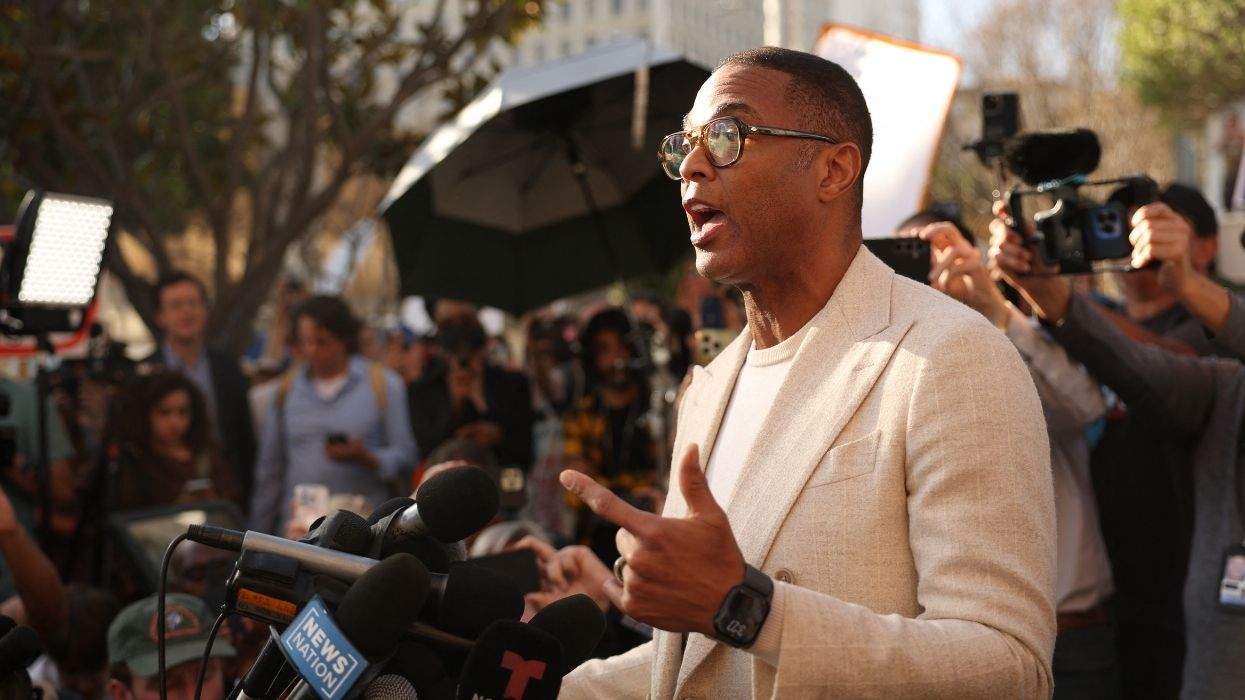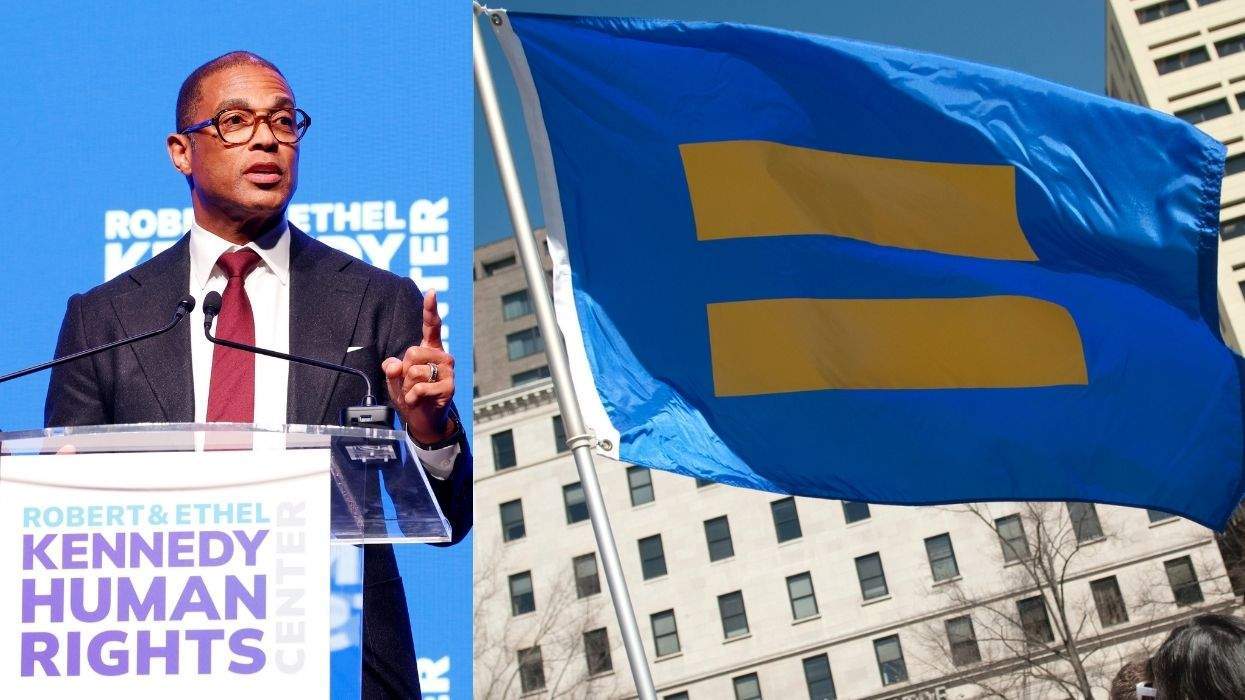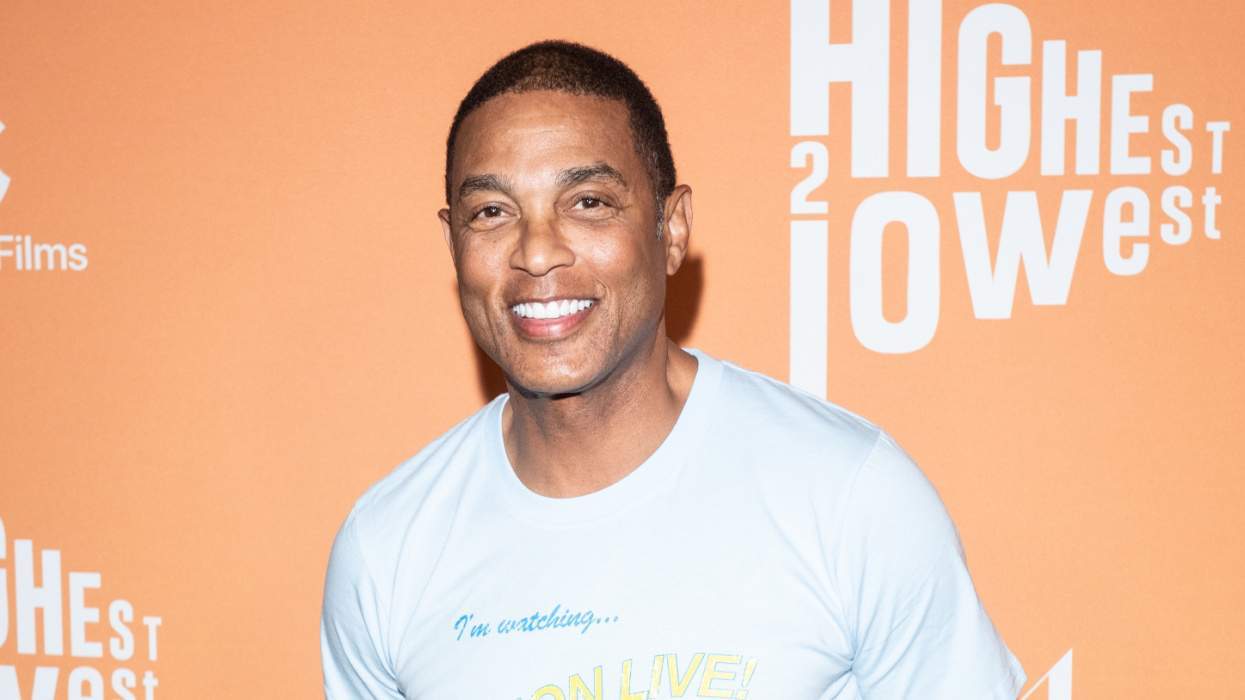In a 5-4 decision announced late on Thursday, the U.S. Supreme Court has rejected President-elect Donald Trump’s bid to delay his sentencing in the New York City criminal cover-up of hush-money payments, cementing his status as a convicted felon when he assumes the presidency on January 20. Chief Justice John Roberts and Amy Coney Barrett joined the court’s three liberal justices, Sonia Sotomayor, Elena Kagan, and Ketanji Brown Jackson, denying Trump’s emergency request dismissing his claim that immunity as president-elect shields him from criminal proceedings. Justices Clarence Thomas, Samuel Alito, Neil Gorsuch, and Brett Kavanaugh dissented.
Keep up with the latest in LGBTQ+ news and politics. Sign up for The Advocate's email newsletter.
The conviction stems from Trump’s May guilty verdict on 34 felony counts of falsifying business records related to a $130,000 payment to bisexual adult film actress Stormy Daniels during the 2016 election campaign. Manhattan District Attorney Alvin Bragg argued that sentencing should proceed to avoid more complex legal hurdles once Trump becomes president. Trump will be sentenced Friday morning in New York, with Judge Juan Merchan expected to impose an unconditional discharge — a minimal sentence that spares Trump prison, fines, or probation but leaves the felony conviction intact. When Trump takes office, it will be the first time a convicted felon will become president of the U.S.
"The application for stay presented to Justice Sotomayor and by her referred to the Court is denied for, inter alia, the following reasons," the court's order says. "First, the alleged evidentiary violations at President-Elect Trump’s state-court trial can be addressed in the ordinary course on appeal. Second, the burden that sentencing will impose on the President-Elect’s responsibilities is relatively insubstantial in light of the trial court’s stated intent to impose a sentence of 'unconditional discharge' after a brief virtual hearing."
Trump, who said he respected the high court's opinion, can still appeal the underlying verdict, and he said he plans to. "We're going to appeal anyway, just psychologically, because frankly it's a disgrace," Trump told a reporter at Mar-a-Lago, NBC News reports.
"For the sake and sanctity of the Presidency, I will be appealing this case, and am confident that JUSTICE WILL PREVAIL," Trump added in a Truth Social post.
The jurors in Trump's case said it was not a hush-money trial but an election fraud trial. Trump's alleged sexual affair with Daniels took place in 2006 (he has denied it happened and has denied any wrongdoing at all), and a payment of $130,000 was made to Daniels shortly before the 2016 election. Prosecutors said Trump and his campaign staff feared that disclosure would hurt his chances of becoming president. He won the election, besting heavily favored Democrat Hillary Clinton.
Trump slept through some of the trial's proceedings, but outside the court and in social media posts, he ranted against the trial, proclaiming his innocence and contending that he is the subject of a witch hunt by President Joe Biden — in the process, violating a gag order issued by Merchan. He continued that after the verdict was announced, saying it was a "rigged trial" in heavily Democratic Manhattan and that he was completely innocent.
















Charlie Kirk DID say stoning gay people was the 'perfect law' — and these other heinous quotes
These are some of his worst comments about LGBTQ+ people made by Charlie Kirk.